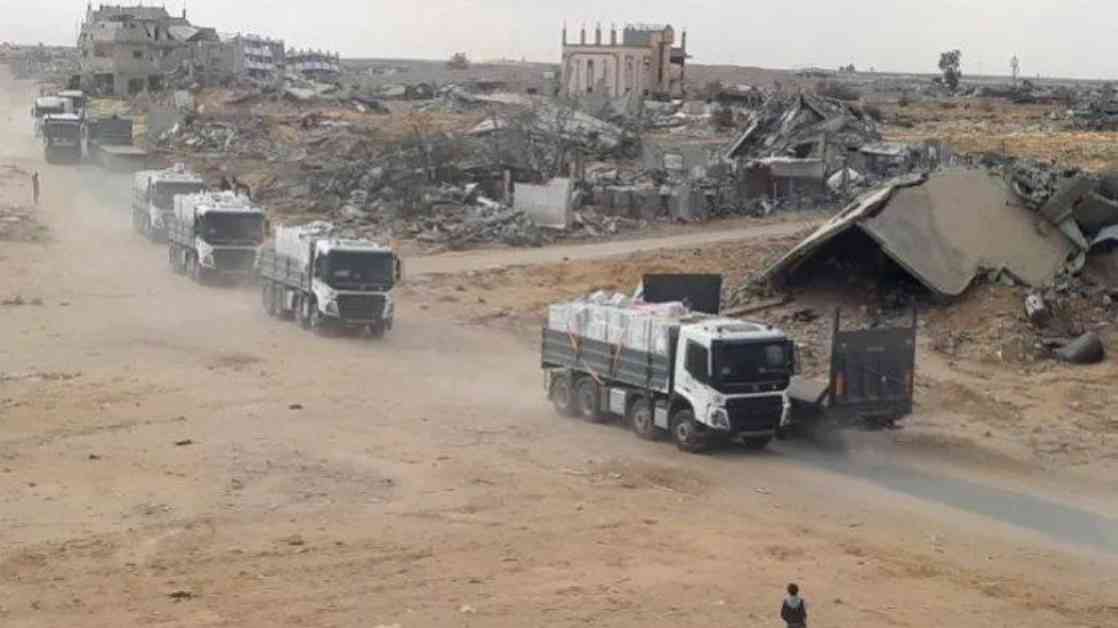Yemen’s Houthi Militants Threaten Israel with Missile Strike in the Red Sea
In a dramatic turn of events, Yemen’s Houthi militants have issued a chilling ultimatum to Israel, threatening to launch missile strikes on Israeli ships passing through the Red Sea. The threat comes as a response to Israel’s blockade on aid and assistance to Gaza, with the Houthi warning that they will continue their naval operations against Israel if the blockade is not lifted within four days.
The leader of the Ansar Allah group, Abdul-Malik al-Houthi, delivered the ultimatum, emphasizing the group’s determination to confront Israel if humanitarian aid is not allowed into Gaza. “If Israel continues to block aid to Gaza, close crossings, and prevent the entry of food and medicine, we will intensify our naval operations against Israel,” al-Houthi declared, as reported by Palestine Chronicle.
Expressing their discontent with Israel’s actions, the Houthi accused Israel of using hunger as a weapon and failing to uphold humanitarian obligations. This stark contrast in approach to Gaza between Israel and Hamas has fueled the Houthi’s anger, leading to the ominous threat of a missile strike in the Red Sea.
Hamas, the Palestinian resistance movement, has voiced support for the Houthi’s decision, describing it as an extension of the support provided during the destructive conflict in Gaza. The escalating tensions between Israel, Hamas, and now the Houthi come at a critical juncture, with negotiations on the next phase of a ceasefire agreement suspended, following a 15-month war that ravaged Gaza.
Israel’s Blockade Tactics and Political Maneuvering
Israel’s decision to block aid to Gaza on March 2, coinciding with the conclusion of the first phase of the ceasefire agreement, has been met with criticism and accusations of using the blockade as a political tool to pressure Hamas. Prime Minister Benjamin Netanyahu defended the blockade, stating that it was a strategic move to push Hamas to accept a proposal for extending the ceasefire, put forth by U.S. envoy Steve Witkoff.
The proposal, supported by the U.S. and Israel, sought to extend the initial ceasefire period, set to end on March 1, 2025, until Easter. However, Hamas rejected the temporary extension, arguing that the proposal did not align with their primary goal of Palestinian liberation. This refusal has further complicated the delicate peace negotiations in the region and heightened tensions between the parties involved.
International Concerns and Diplomatic Efforts
The escalating crisis in the Middle East has drawn international attention and sparked concerns about the potential consequences of a military confrontation between the Houthi militants and Israel. Diplomatic efforts are underway to defuse the situation and find a peaceful resolution to the blockade in Gaza, as well as prevent any further escalation of hostilities.
As the clock ticks on the Houthi’s ultimatum and the deadline approaches, the fate of the region hangs in the balance. The intricate web of political, humanitarian, and military dynamics at play underscores the complexities of the situation and the challenges facing all parties involved. The coming days will be critical in determining the path forward and whether dialogue and diplomacy can prevail over conflict and confrontation.
In conclusion, the threat of a Red Sea missile strike by Houthi militants against Israel marks a troubling escalation in tensions in the region. The underlying issues of humanitarian aid, political maneuvering, and conflicting objectives have created a volatile situation that demands careful navigation and swift action to prevent further violence and instability. The world watches with bated breath as the clock ticks down, waiting to see how events will unfold and what the future holds for Gaza, Israel, and the broader Middle East.






















